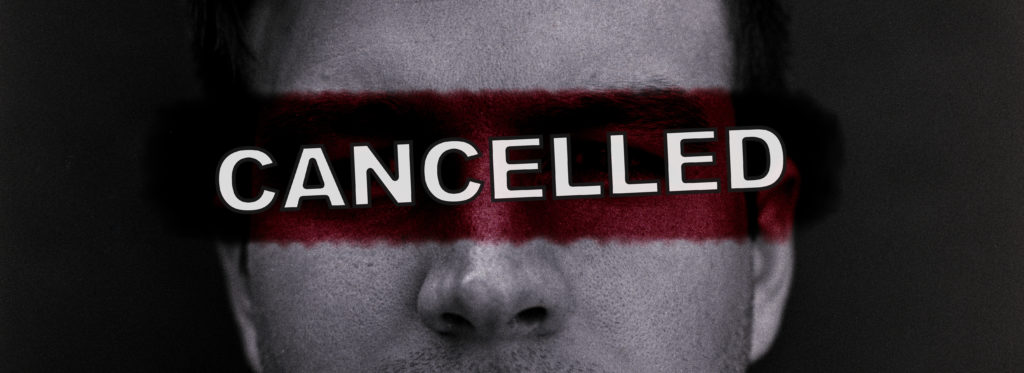
It seems like just about every week there is another celebrity, politician or athlete who gets fired, kicked out or slandered on social media for something they said or did. A post from 10 years ago that included a racial or sexist comment gets brought up again and again to continually shame the person in question until their future prospects are all but nonexistent.
As society continues to embrace this “cancel culture,” the continual reminder is that we, as a society, have forgotten how to forgive.
Even right now in the BYU community people are “cancelling” football player Wes Wright and calling for him to be kicked off the team for a denigrating remark to a woman on Tinder.
Without condoning Wright’s actions, or excusing bad behavior by celebrities, politicians and other public figures, it is a little ridiculous when there is a person-destroying feeding frenzy over individual mistakes that begs the question: Who gets to decide who is and isn’t deserving of forgiveness?
Mimi Groves was recently kicked off the University of Tennessee cheer team due to a viral video of her uttering a racial slur. Mounting backlash on social media led the university to pressure Groves to withdraw from the university as well.
She was 15 in the video taken during her freshman year of high school. Classmate Jimmy Galligan received the video of Groves from a friend three years later during their senior year. Galligan held onto the video until Groves got accepted into college a year later. At the height of the Black Lives Matter movement, he published the video. “I wanted to get her where she would understand the severity of that word,” he told the New York Times.
Groves apologized profusely, saying she was too young and didn’t understand the gravity of the situation. She condemned her actions and said she would accept all consequences.
But publicly shaming her and getting her kicked out of a university for a misstep she made in high school and now regrets begs the question: Where should forgiveness weigh in?
In 2017, Disney fired James Gunn, the “Guardians of the Galaxy” director, right before he was set to direct the third film. Old tweets of his from nine years prior had resurfaced with inappropriate jokes regarding race, sexual assault and more.
Should Gunn have tweeted those things? Absolutely not. He claims he was trying to be “provocative” with his tweets, but nonetheless they were horribly insensitive.
Did he apologize several times and respectfully take all responsibility for his actions? Yes.
Two years later Disney reinstated Gunn after several meetings with Disney Studios chairman Alan Horn, who decided his public apology and handling of the situation warranted reinstatement.
In his public apology, Gunn said he regretted those tweets for many years. He said all he can do now besides offering his regret “is to be the best human being I can be: accepting, understanding, committed to equality, and far more thoughtful about my public statements.”
At the end of the day, isn’t that the best that can be expected among humanity — learn from mistakes and be better people?
Everyone makes mistakes. Some regrettably worse than others. Some causing more damage to others. Bad behavior should involve consequences and not just an empty acknowledgement by someone that they are “taking responsibility.” Where is the critic without blemish who should cast the first stone?
But from those mistakes, fellow travelers in this experience of mortality should give each other opportunities to learn rather than just play the role of judge to those who mess up.
Cancelling someone who acknowledges mistakes and asks for forgiveness deprives them of the ability to learn why they were wrong and communicate that they want to improve.
Who would want their career, life, education stripped away from because of something wrong said while young and dumb? Wouldn’t most people want to make amends and have a second chance?
Cancelling everyone who does something wrong just divides society further. At this point in history, the last thing society needs is more division.
Holding grudges will put up walls to separate people. Forgiving will build bridges to bring people together. And everyone needs a little extra compassion in this increasingly lonely time.
— Cassidy Wixom
Universe Senior Reporter




